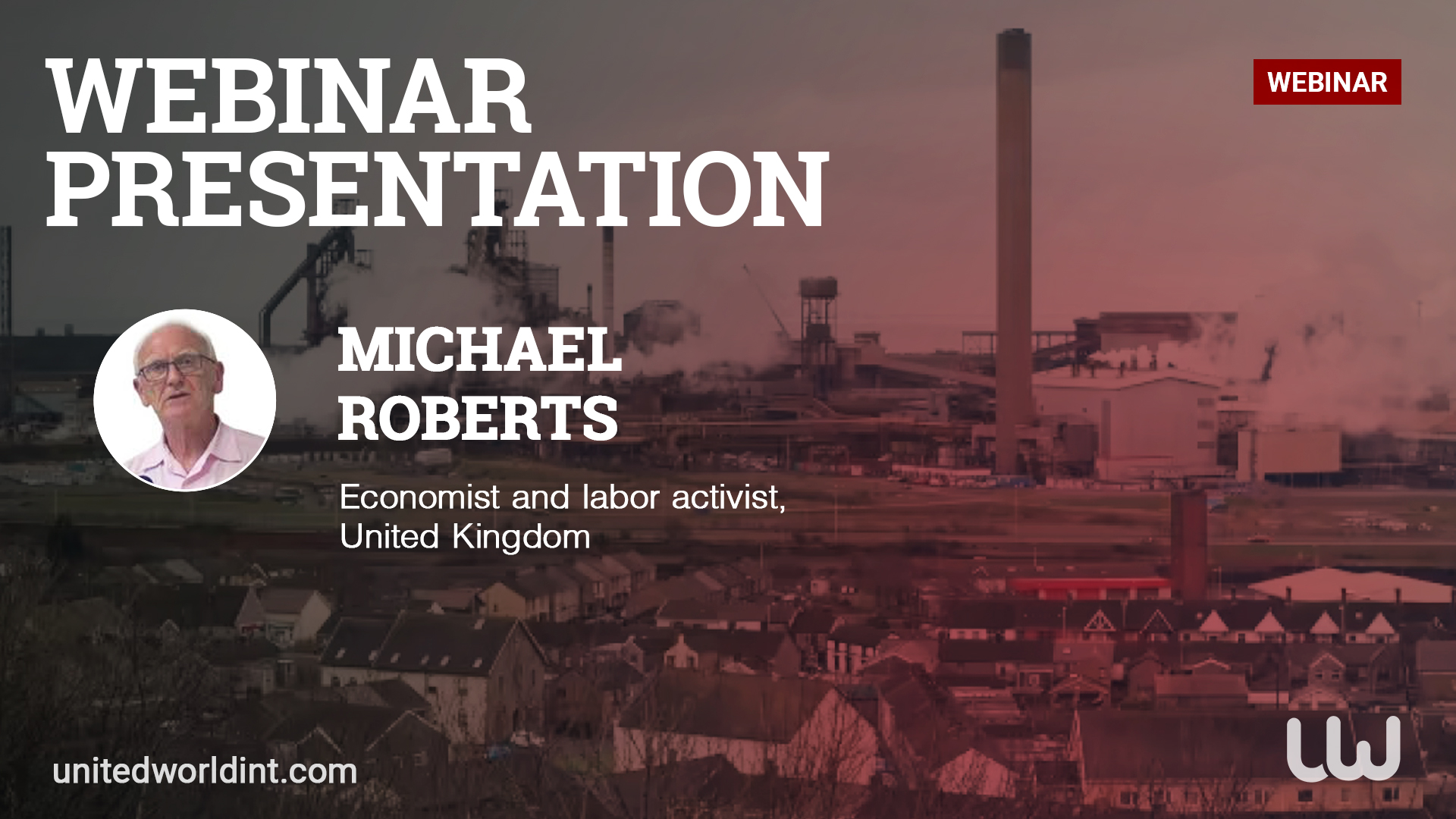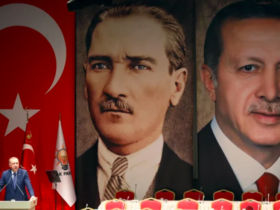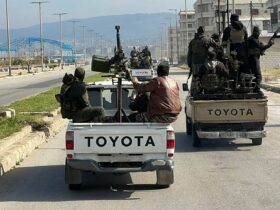Today we are publishing the third speech held on UWI’s webinar on “Europe’s Energy Crisis and the Prospects of Turkish-Russian Cooperation”.
The previous presentations are embedded into the text below. Title and subtitles were set by UWI.
By Michael Roberts,
Economist and labor activist, United Kingdom
The current political position is quite clear from the NATO countries and the European Union that are supported and led by the US: they don’t want to buy any energy from Russia and they want to end all energy purchases from Russia. That is the war and political aim of Western governments at the moment.
We stand in a position where this discussion is very interesting, because it tells you we have a major discussion going on here about an energy crisis. This discussion also tells that the war that is taking place in Ukraine is not a war just of weapons, we are now using economic sanctions as a weapons war in a major way that has never been used primarily as much as now, at least even in the WW2 or in previous wars. The main object of Western governments is not to send troops into Ukraine to fight the war alongside Ukrainian troops but to try and strangle the economic and energy position of power that Russia has. Are they going to succeed in that? It is the question in a way this discussion is taking place on. We have seen both oil and gas sanctions now and the further development of price caps both on oil and gas being introduced first on oil now apparently going to be on the gas. Whether these will succeed in squeezing down the ability of Russia to sustain its export revenues across the world remains to be seen. My impression is that that is not going to be the case, certainly on oil that the oil price cap is at a level which does not threaten very much the position of Russian oil exports to the rest of the world outside of Europe. The gas price cap also seems to be pitched at such a level that it will also have a similar little effect on gas exports. But more importantly what this discussion we had so far is about actually the practical ability to transfer energy from Russia with its powerful energy production resources into Europe.
European governments are not prepared
First of all Europe or at least the European governments are not prepared to take this anymore. Will they be able to avoid and divert their consumption away from Russian energy exports? It seems that that is going to be a difficult process. It is clear that the energy capacity is at maximum levels in the storage units within Europe at the moment to get through this winter and the claim that there is going to be a severe winter freeze and outages in Europe is unlikely now for two reasons: First of all, capacity is at maximum and secondly, there seems to be some reduction in energy consumption being carried out by European consumers to enable them to get through this winter. So these factors provide as it were a gap between rather we move onto a more significant energy crisis next year, winter 2023, than this particular winter that we are going through. Because those capacity levels are going to come down very sharply over the next few months. And as we get towards the summer then we will see the situation of whether European consumers are prepared to accept the situation as Mr. Mitrakhovich said earlier that it will take a year or two maybe if this war is going to drag on before European consumers begin to feel the results. Because what we are talking about, and I think that was clear from our previous speakers, is that alternative sources of energy outside of Russia are going to be very difficult to provide particularly for Europe, but also can lead to a hugely increased cost. I mean liquid natural gas imports which European governments are trying to do now is going to be four times the cost of the previous energy imports made from Russia through gas pipelines and the oil process and so on. That means that it is going to be a huge hit on the cost of living. We have already seen that across Europe. I speak in the UK where the cost of living is hit really to the average household in 200 years though a significant reduction in just the space of one year. That is an indication of the hit to the cost of living that European consumers are going to experience this year and next.
Germany in particular and the rest of the Eurozone are now heading into a significant recession or slump in production and investment, talking something like a three percent reduction in German GDP which is unheard of since WW2. In fact, across the whole Eurozone, we are going to experience a reduction in output and investment that has not been seen much greater than the so-called recession of 2008-20099. Whatever we might say about what is happening in the war, this is a significant economic hit to the whole of Europe. The question really is whether we are going to see a change in the overall energy supply-demand process that has existed up until the last several decades in Europe and the rest of the world. I cannot see a return by European governments, which is the original question to using Russian energy over the rest of this decade. There is going to be a significant attempt, despite the terrible situation facing European consumers over the next year or two, to switch completely to other sources.
One of those sources is the subject of this debate. Could Europe be supplied with energy, particularly gas, through a hub which will be based in Türkiye and then go into Eastern Europe through the technology that might be available to do to provide enough for an extra or alternative sufficient supply of gas to avoid Europe having to rely upon liquid natural gas and imports which are just going to be hugely expensive, particularly for small countries like Serbia? Can Türkiye become this sort of hub? From what we have heard so far the evidence would suggest it is not going to be so easy. Even if it were possible from the point of view of the war going on and sanctions being applied by the West, there would be an attempt to block such an alternative for Russian energy supplies. Then it is going to take several years. Mr. Mitrakhovich pointed out that it would take three years for Russia to organize the technology pipelines to transfer energy supplies into China for example. There is a severe sanction being placed upon important technology for such uh pipelines and so on. Russian technology imports in this specific area are down 28 and I am afraid that technology depends upon Western technology to a great extent in the energy area. Therefore there will be a 40 fall in the ability to production these particular technology products in Russia. So they are not yet capable of providing the technology to create these new pipelines, in particular, to take the technology underneath the Black Sea from Türkiye into Eastern Europe which is a major technology project and not available yet. I cannot see the hub idea is going to be a significant fact at least in the next two or three years or maybe longer.
That is seriously hitting a whole layer of people and something like 40 of consumers in the UK will be unable to meet their energy bills in the next year. In the UK, it’s not a question of direct gas supplies from Russia, but from the main electricity price supplied by France. You have pointed out that France has that option of nuclear power to provide that energy supply both for itself and for countries like the UK although nuclear power stations in France at the moment are well below capacity. These stations are quite old and that is why France is planning a whole new range of nuclear stations to deal with it.
If we look at the situation geopolitically, we see this: Will European consumers receive their supplies from elsewhere apart from Russia (partly from North Africa but that would be enough, partly from the US which is extremely expensive, partly from the attempts to create new forms of energy supply which is going to be spread throughout the rest of this decade)? On the other hand, Russian energy exports and supplies are going in a different direction, towards the east and into Asia, probably not at the same level of export revenue as a result, but nevertheless, this division is going to develop geographically on the energy front. It is a complete disruption of the previous energy trade-supply chain that we have seen before.
Türkiye’s chances
Can Türkiye provide something in between which allows energy from Russia to come into Europe through the process the hub and the pipelines that could yet be built? So far from what our other speakers have said and maybe they would like to comment on this I can’t see that being done in any quick time if at all, partly because of the technology still isn’t there partly because we are in the middle of a war, but also partly because I am not sure that Türkiye has got the facilities for the energy and the money to provide for that sort of pipeline. On a long-term basis if Türkiye becomes a gas and energy hub that could supply Europe that will transform in many ways the position of the Turkish economy which is in a dire situation. Türkiye is facing the massive problem with inflation rate over 80, that is way way higher than that of Europe where the current budget deficit is huge and where it is relying very much on hot money from various sources around the world to finance its deficit and pay its debt. That Türkiye could become a gas and energy hub would do away with this continual roller coaster situation. But it seems to be way too optimistic at the moment given the environment both globally and above all the effect that the Ukraine conflict continues and appears to be continuing indefinitely over the next year or two.
















Leave a Reply